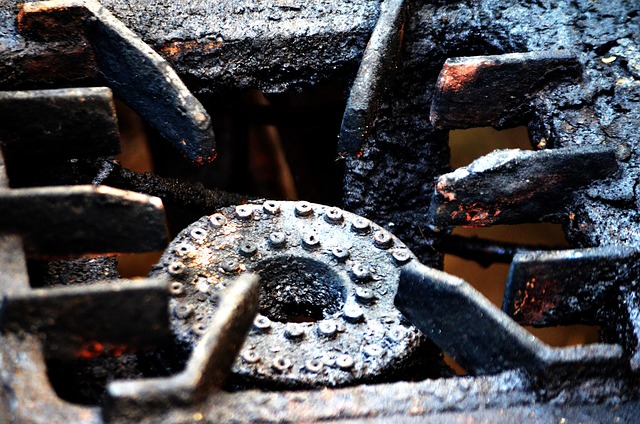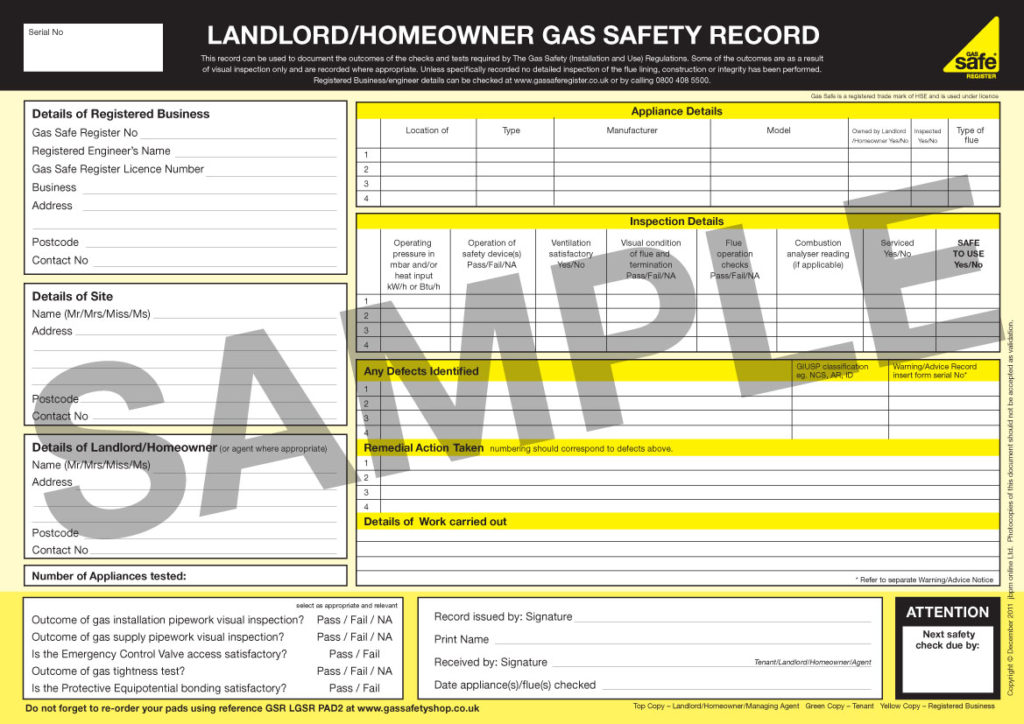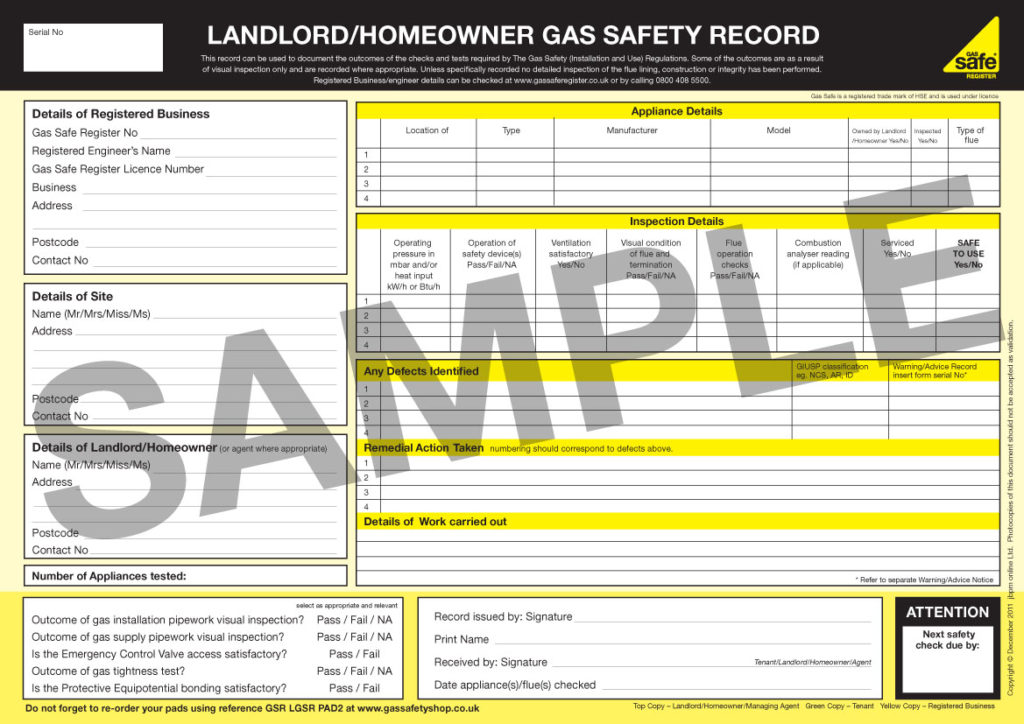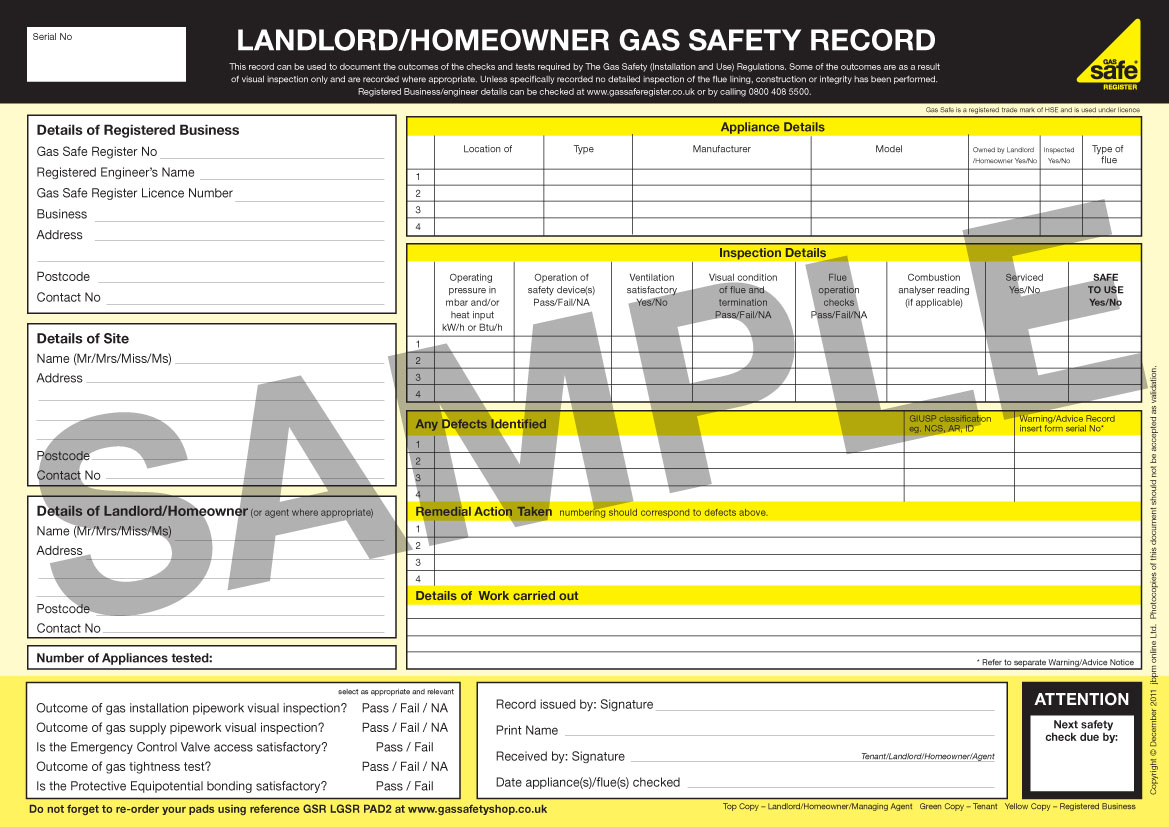While many landlords are aware that they need to obtain a gas safety certificate, they are not always aware what the tests involved with earning the certificate are.
One of the tests for a gas safety certificate will be to test your gas appliances with respect to gas tightness. This is a very important test because any looseness or slackness in your gas appliances could see gas escape into your home. This is a serious danger, and it is one that can come about completely unseen, making it a very serious threat to your home or tenants. It is a simple test that doesn’t take a lot of time but it is a test that can save lives and it is an integral component of any gas safety certificate test.
If there are any test points available in your property, these will also be tested by the registered gas engineer. The key points being tested will be the standing pressure and the working pressure. If there are any abnormalities in this aspect, it may be that there is a leak or something not quite right with your gas appliances. This test can help to minimise the likelihood of any dangers or issues with your gas supply.
Gas rates and burner pressure will be tested
An important test comes with checking the gas rate and burner pressure against the information recorded in the manufacturers data plate. Again, any abnormalities or deviances from the stated figures may indicate that something is not right, and which has to be resolved. Even if issues are flagged up during the testing process, it doesn’t mean that you cannot get a gas safety certificate, it just means that you have to have the matters repaired and resolved.
Given that you have a registered gas engineer in place at your property, you’ll find that you will be able to call on their services to carry out repair work. At Cenultra, we can provide registered gas engineers to carry out the test but we can also ensure that any issues or problems are resolved as quickly as possible. While the main aim of hiring a registered gas engineer to test your appliances and gas supply is to obtain the necessary certificate, if problems are found, it is best to have them resolved as quickly as possible.
Other aspects that will be examined during the test include:
– A check on ventilation in the property
– A check on the flue flow to ensure that any products of combustion are removed
– That all flame failure devices will be examined to ensure that they are working in a satisfactory manner
– If appropriate, all stability brackets will be tested for effectiveness and presence
There will also be checks to determine if any unsafe operation has been undertaken in the property, and if there has been, it can be reported. This can be seen as a preventative measure, minimising the likelihood of problems arising in the future. It may be that a tenant doesn’t know that they are acting in an unsafe manner or that a landlord is unaware of this sort of activity taking place. The test is there to highlight and point out these aspects and if any dangerous behaviour is taking place, bringing it to the attention of relevant parties will hopefully prevent it from becoming an issue in the future.
These tests need to be passed to earn a safety certificate
All of these tests form part of the gas safety certificate, and without the successful completion of all of these steps, a safety certificate will not be issued. Given that this is a legal requirement, there is a need to ensure that your property is considered to be safe and up to standard with respect to gas.
It is easy to see why many landlords will be unhappy about the cost and inconvenience of arranging the test, but in the long run, this is a certificate that is very important to have. The peace of mind that comes from knowing your property is safe and being well looked after should be of comfort to a landlord and his tenants.
At Cenultra, we believe that we can provide a value for money gas certificate that provides you with everything you need at a fair price. We have a dedicated team who focus on providing the best standard of property maintenance and whether you need assistance in maintaining the condition of your home or meeting legal requirements, we are on hand to help you out.




